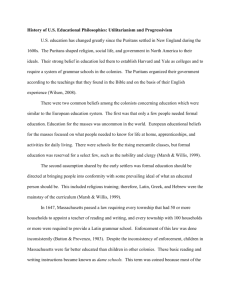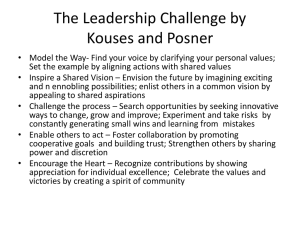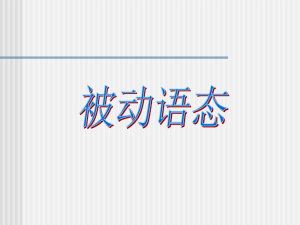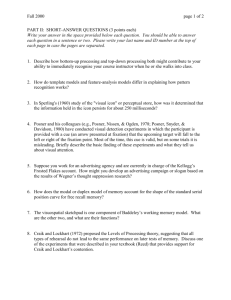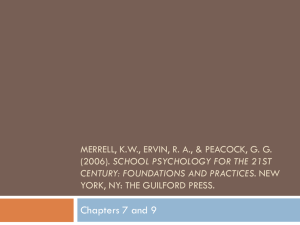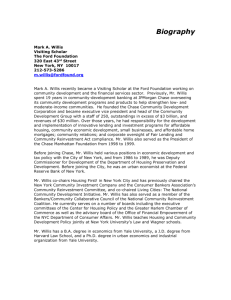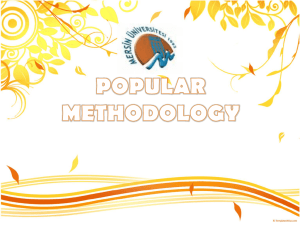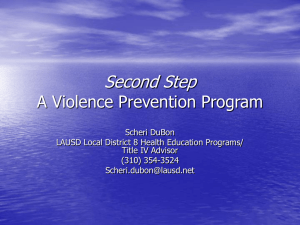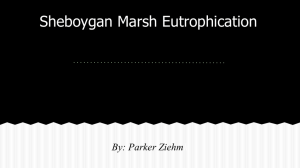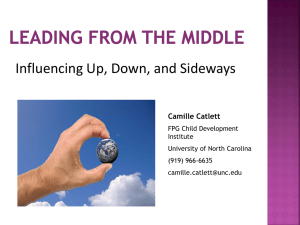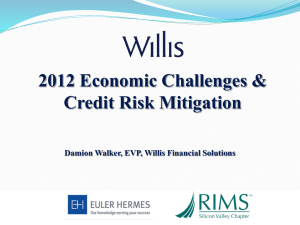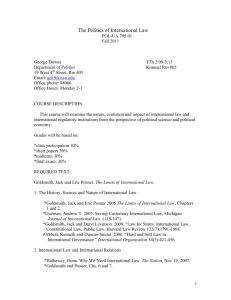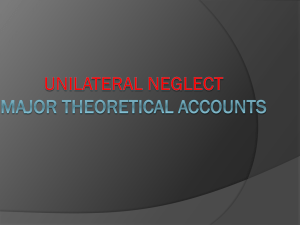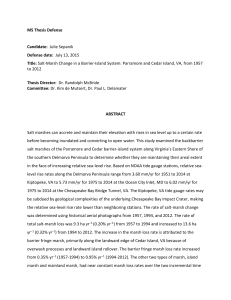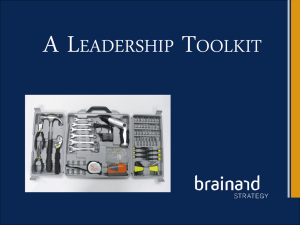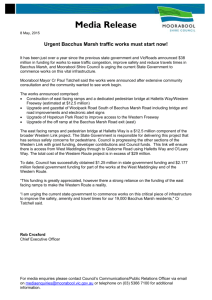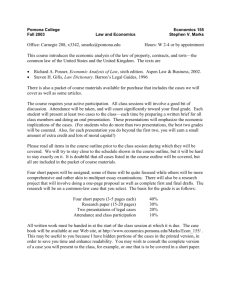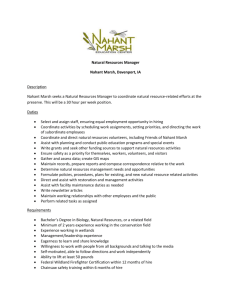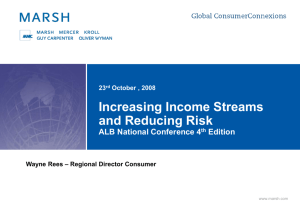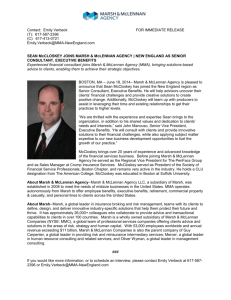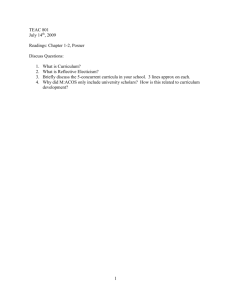Curriculum: Alternative Approaches, Ongoing Issues
advertisement
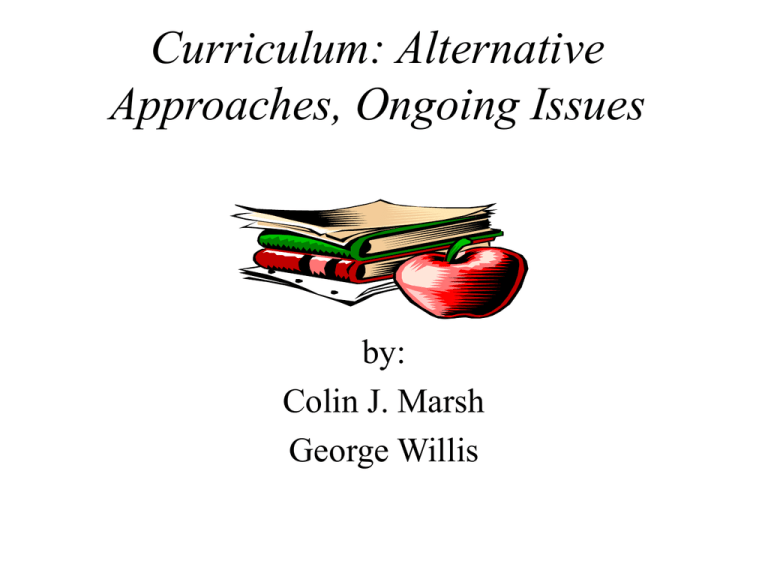
Curriculum: Alternative Approaches, Ongoing Issues by: Colin J. Marsh George Willis I. The Character of Curriculum • Defining Curriculum An Interrelated Set of Plans and Experiences that a Student undertakes under the Guidance of a School The Term: Curriculum Truth: Everyone talks about it, and everyone has a slightly different meaning for it. Important Questions to Ask • What should count as knowledge? What knowledge is of the most worth (Spencer)? • Who should control the selection of knowledge? • Who should participate in the “experience of curriculum” (Dewey)? Important Questions to Ask • How do you best organize a curriculum? • When and how should changes in a curriculum take place? • How do schools evaluate that a curriculum is best? Who is responsible for the evaluation? What do you evaluate? Defining Curriculum • Currere (Latin) - to run the course (race)the racecourse • More than 120 definitions of the term (Portelli) • Historically used to define the classics of Greek civilization (Plato and Aristotle) Cl i p Definition of Curriculum (Marsh & Willis) Curriculum: “an interrelated set of plans and experiences that a student undertakes under the guidance of the school”the planned curriculum the enacted curriculum & and the experienced curriculum. Varied but Important Definitions of Curriculum • Curriculum is “permanent” subjects such as grammar, mathematics, etc. • Curriculum is those subjects useful in contemporary life • Curriculum is all “planned learnings” for which a school is responsible - a list of planned outcomes • Curriculum is all the experiences learners have under the guidance of the school. Varied but Important Definitions (con’t) • Curriculum is all the experiences that learners have in the course of living. Other ways the term curriculum is used (Posner) : • Scope and Sequence - • Textbooks - Day- to the range and order of day guide of the learning experiences content to teachers and students • Syllabus - The plan for an entire, specific • Course of Study - a course series of courses a student must go • Content Outlinethrough an outline of the content to be covered Other Useful Definitions of Curriculum (Posner) • The Official Curriculum - the “written” curriculum in syllabi, courses of study, etc. • The Operational Curriculum - what is actually taught (Give an example). • The Hidden Curriculum - what is taught and/or learned on issues of gender, class, and race, authority, who can succeed at various tasks, what is “appropriate” behavior (Give an example). Other Useful Definitions of Curriculum (Posner): • Null Curriculum - subject matters not taught -law, parenting, etc. (Give an example). • The Extra Curriculum - includes all those planned experiences outside of school subjects, sportsmanship, team play, etc. (Give an example). Curriculum and/versus Instruction? • Traditional definitions: Curriculum = what is to be learned ( versus ) Instruction = the process or how it is taught, i.e., the ends versus the means. • (Marsh & Willis) - Hold a holistic, organic view of curriculum and instruction consistent with recent trends, i.e.,. school- based curriculum development (SBCD)- the direct involvement of teachers in both curriculum and teaching.
